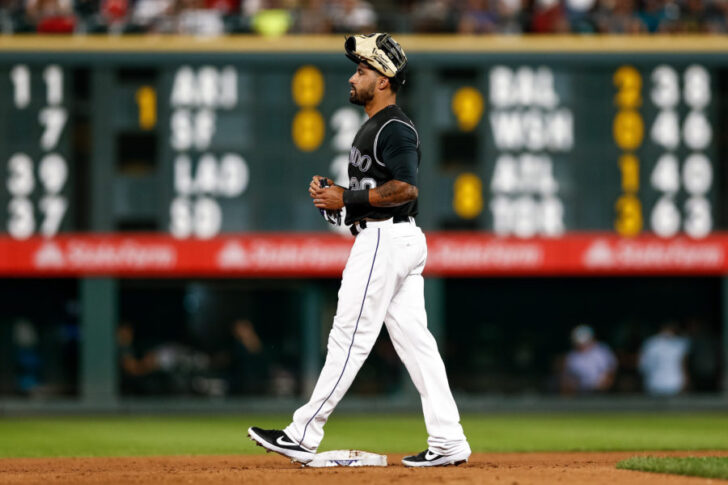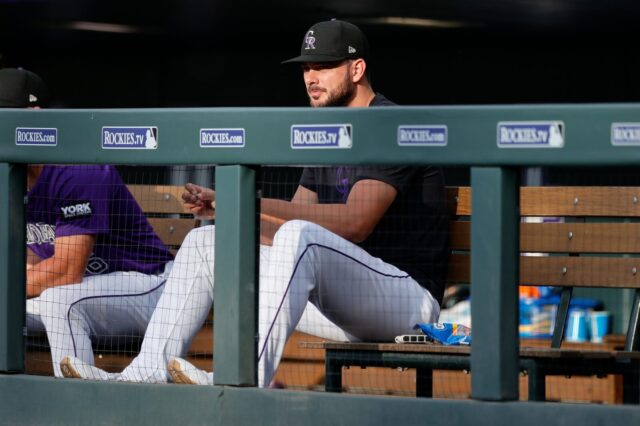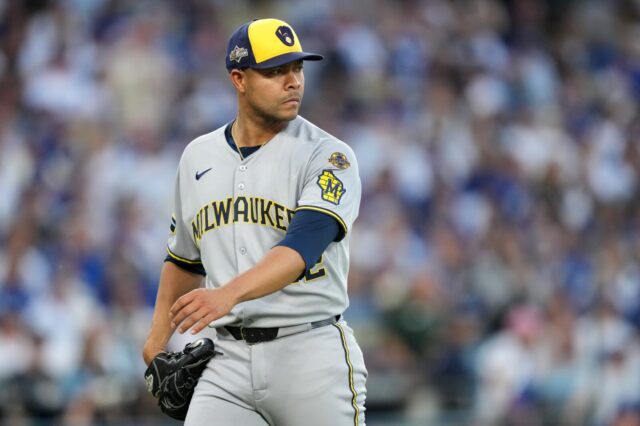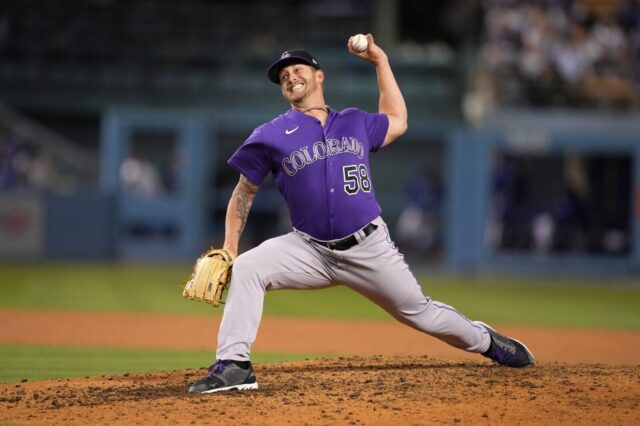What happens in Major League Baseball when a club that routinely underspent for much of their history reverses course? Ask the Colorado Rockies and the answer would be grim.
Slowly, the front office of the club has risen its threshold for funds allocated towards improving the product on the field – thanks in no small part to a large increase in revenue. In regards to the players that arrive each day, the club has paid more for less.
A daring cocktail of Ian Desmond, Wade Davis and Bryan Shaw have the lines blurred between paying for performance and just paying.
Add in Daniel Murphy’s two-year, $24 million pact and the concoction is enough to have Bud Black seeing stars – though not on the field.
Of course, there have been worse teams. In the club’s 27-year history, there was the 1994 team that amassed only 53 wins, though the schedule only included 117 games.
That team was led by Dante Bichette, Vinny Castilla and the rest of the proverbial founders of Mile High baseball. The payroll was $22.9 million, only 23rd in the league. When adjusting for inflation, it comes to roughly $40 million in today’s game.
The Rockies’ top salary in the least fruitful season in their history was Andres Galarraga’s $3.85 million.
It’s unfair to compare the salaries of a 1994 team and a 2019 team. A closer measure could be taken from the 2012 iteration of the Rockies. The 64-win club led by Jim Tracy was the second-worst in franchise history, pending the result of the current campaign.
The highest salary on that club was a tie between Michael Cuddyer and Jorge De La Rosa who both brought in $10.5 million respectively. In total, the downtrodden roster racked up a price tag of $88.2 million. Once again, inflation would bring the total to roughly $98.5 million.
If you do the math – adjusted to today’s prices – Rockies’ players in 2012 got paid roughly $1.5 collectively for each win. This year, after Thursday’s loss, that mark is $2.6 million. The biggest outlier is Desmond.
The infielder-turned-outfielder has posted a team-worst -1.9 wins above replacement this year. In simpler terms, a league-average player would be worth nearly two more wins on the year than Desmond.
Among the league’s players being paid at-or-above the level of Desmond’s $15 million, none have been worse for their team’s success. Money notwithstanding, his WAR on the year is last in the majors.
Most recently, Desmond is marred in an 11-for-65 slump that dates back to July 31. In that span, he has only five extra-base hits and 17 strikeouts. Outside of May and June, he’s failed to eclipse a .720 OPS in any other calendar month. The league average this year is .755.
The Rockies’ top-seven salaries – Nolan Arenado, Charlie Blackmon, Desmond, Murphy, Shaw, Davis and Jake McGee – have combined to produce 4.8 WAR. For comparison, Rafael Devers, who recently went rabid on the club’s pitching in a two-game set, is at 5.0. His salary is $614,500.
That aforementioned bundle of Rockies? An unsightly $107 million – greater than the entire Padres’ payroll.
No other club in baseball can match the Rockies’ blend of bad baseball and worse contracts this year. Only the San Francisco Giants are even comparable.
With a payroll of $172 million, the Giants are paying approximately $2.6 million as well for each of their wins. The difference is that they’re on the backside of winning three World Series in five years.
Part of winning those titles, in large part, was due to former MVP Buster Posey who is the highest-paid player on the roster ($22.2 million).
Ask any Rockies’ pundit – or sports viewer of any kind – if they’d trade a couple of bad years for one of the best five-year stretches in recent history, and they’d gleefully accept the offer.
The club, past this year, has a lack of cheap reinforcements.
Currently, the Rockies are going to be forced to hold onto veterans like Murphy, Desmond and Davis. The farm system of the franchise has little to spare for a trade that would entice another club to take on the contracts of any one of the three players.
There’s an argument – which analytics and stats prove – that the club would be better off paying Desmond to not play for them. The point disregards clubhouse impact and also goes against how the Rockies’ current regime has done business.
So that leaves the Rockies with two options. Go into full tank mode, similar to that of the Orioles and Marlins, or simply hope for progression next year. The current plan of paying more money for less production is futile.
Other teams are afraid to take on big contracts for aging players. The Rockies’ front office has failed to adjust to the trend.



